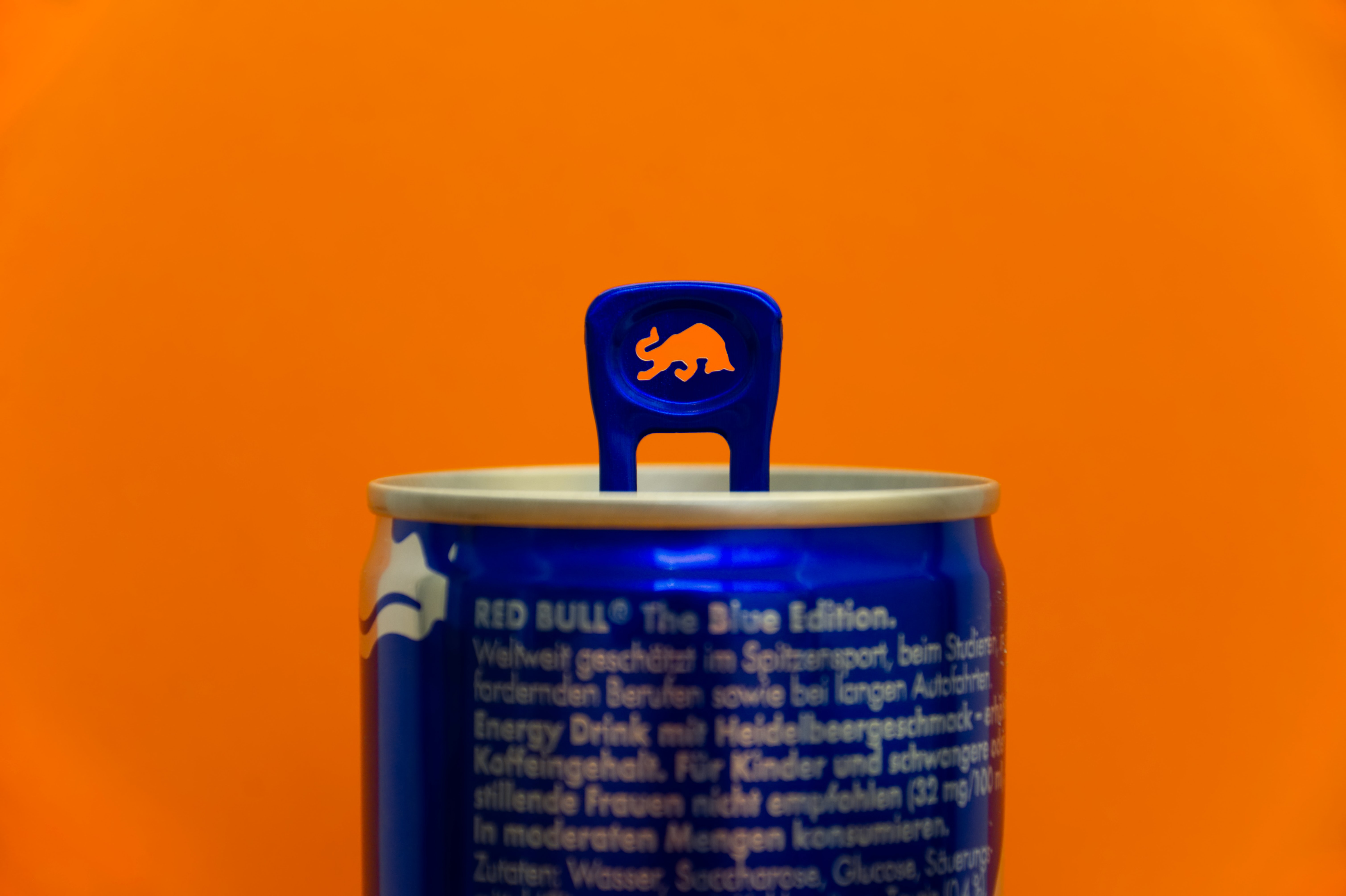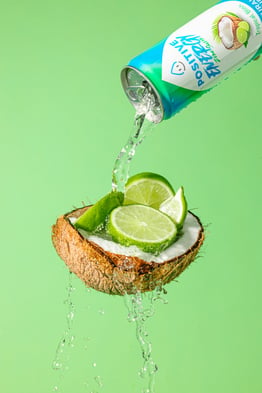Are There Any Healthy Energy Drinks?
In the wake of the pandemic, US consumers have become more health-conscious. This is a trend we can see in both the food and beverage markets.
In response, savvy CPGs have developed products that offer a host of health-promoting benefits. Their packaging highlights organic, clean, immune-boosting, all-natural ingredients.
It might come as a surprise that energy drink brands are also looking to capitalize on this trend. Energy drinks are often seen as an unhealthy option.
So are brands being disingenuous when they market their “healthy” energy drinks? Or is this a legitimate opportunity for health-conscious brands and consumers?

What makes energy drinks ‘unhealthy’?
The conscious consumer will find lots of evidence to show that energy drinks are an unhealthy dietary choice.
Their high caffeine and sugar content has been linked with various mental and physical health problems.
Let’s take a quick look at the reasons energy drinks often get a bad rep.
Energy drinks are bad for your heart
Energy drinks contain lots of caffeine.
When consumed in large quantities (more than 400 milligrams in a day for adults), the caffeine in energy drinks can cause:
- Increased heart rate
- Increased blood pressure
- Heart palpitations
They’re high in sugar
Energy drinks often contain lots of sugar.
According to the CDC, Americans over the age of two should limit their intake of added sugars to less than 10% of their daily calories.
Too much sugar is associated with health problems such as obesity, type 2 diabetes, and heart disease.
They’re harmful for adolescents
Teenagers are more likely to experience the negative side effects of energy drinks than adults.
According to the NCCIH, teens and young adults who drink energy drinks are at an increased risk of:
- Cognitive under development
- Depression and anxiety
- Sleep disorders
- Heart problems
Energy drinks can be dangerous when combined with alcohol
Energy drinks have also received negative press for their effects when combined with alcohol.
This combination increases the risk of binge drinking as the energy drink counteracts the depressive effects of the alcohol.
Binge drinking is linked to a long list of health problems including stroke, heart disease, liver disease, and cancer.
What is a healthy energy drink?
For a long time now, energy drinks have contained high levels of caffeine and sugar. It’s these ingredients that are responsible for giving us an energy boost.
A healthy energy drink, however, uses fewer of these ingredients. To be considered a healthy energy drink, a product should contain:
- No added sugar (or very low levels of added sugar)
- No artificial sweeteners or colors
- Less than 200mg of caffeine per serving
Many healthy energy drinks also contain natural sources of caffeine along with natural sweeteners. And they may claim to do more than boost energy, with some brands talking up their ability to boost mental and immune function.
How do you shop for healthy energy drinks?
Most shoppers are well aware that traditional energy drinks aren’t the healthiest option on the supermarket shelf. But health-conscious consumers are still keen to find an energy-boosting beverage without the associated health risks.
Luckily, a bunch of brands have risen to the challenge and are now offering energy drinks with better-for-you ingredients.
So how does a consumer, scouring the beverage section of a store, find the healthy energy drink option they’re looking for?

Look closely at the:
The packaging – clean, healthy energy drinks tend to have packaging that reflects that ethos
The label – more reliable than the packaging is the actual ingredients used to make the product. Consumers will be scanning labels to find:
- Sugar content
- Caffeine content
- Calorie content
- Whether ingredients are natural or synthetic
5 of the healthiest energy drinks
Now let’s take a look at a few market leaders in the healthy energy drink sector.
Mati Unsweetened Sparkling Organic Energy Drink (Unsweetened)
Mati is made with all-natural ingredients and comes in raspberry/mint, lemon/ginger, and grapefruit varieties.
A 12 fl oz bottle provides:
- Caffeine: 115mg
- Sugar: 0g
- Calories: 0
The USP? Mati promises a crash-free caffeine boost, thanks to its guayusa tea caffeine (which contains theobromine and L-Theanine too).
Vital Proteins Collagen Energy Shots
The caffeine in Vital Proteins Collagen Energy Shots comes from sustainably-sourced coffee fruit extract. The drink is flavored with natural fruit juices and packs in 7 grams of protein per bottle too.
A 3 fl oz bottle provides:
- Caffeine: 90mg
- Sugar: 4g
- Calories: 40
The USP? This drink also contains collagen peptides and hyaluronic acid, which are said to benefit skin hydration and elasticity.
Proper Wild Clean All Day Energy Shots
The focus for this product is “clean”. Clean ingredients. A clean green-tea-derived caffeine fix, that provides long-lasting energy without the caffeine jitters. Sugars are natural and derived from fruit juice.
A 2.5 fl oz bottle provides:
- Caffeine: 180mg
- Sugar: 9g
- Calories: 25
The USP? Proper Wild energy shots contain twice as much caffeine as a shot of espresso and 15 times more L-Theanine than green tea.
Sound Sparkling Organic Yerba Maté Tea
Sound describes its product as sparkling tea, with botanicals and fruit extracts. Its Yerba Maté version – containing lemon and lime flavors – is the only one with enough caffeine to be considered an energy drink.
A 355ml bottle contains:
- Caffeine: 70mg
- Sugar: 0g
- Calories: 0
The USP? Sound Sparkling Organic Yerba Mate offers a gentle caffeine boost and a bold, botanical flavor.
CLEAN Cause Zero
Available in watermelon, cherry lime, and orange ginger flavors, CLEAN Cause Zero drinks provide a natural yerba maté caffeine hit, with no artificial flavors, ingredients, or chemicals.
A 16 fl oz bottle contains:
- Caffeine: 160mg
- Sugar: 0g
- Calories: 0
The USP? As well as offering consumers a healthier energy boost, CLEAN Cause is a social enterprise, with 50% of its profits going towards drug and alcohol addiction support services.
Check out the rest of the Buffalo Market blog for more food and beverage insights for health-conscious consumers.

